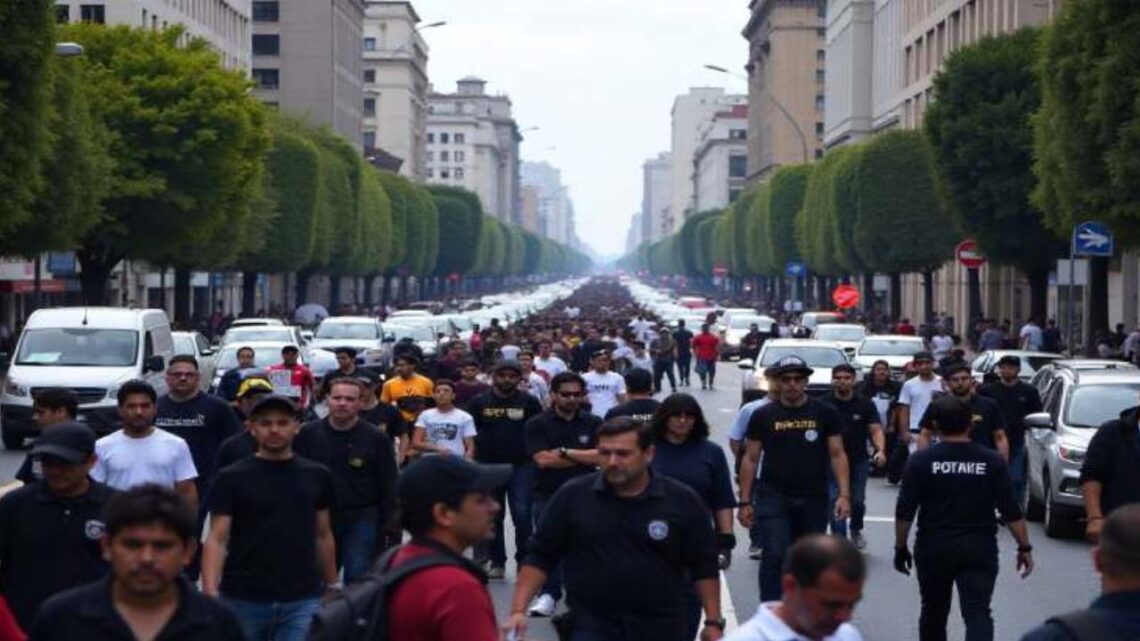Peru is currently facing major protests and a nationwide transportation strike that are severely disrupting travel, public services, and daily life. From October 11 to 20, 2025, cities like Lima, Cusco, and Arequipa are among the hardest hit.
If you’re a U.S. citizen traveling to or already in Peru, it’s critical to understand the evolving situation, anticipate disruptions, and take precautions. This article provides all the latest details, impacts, and guidance you need to stay safe and informed.
Protest & Strike Timeline: What to Expect
| Date(s) | Event | Locations Impacted | Main Causes / Demands |
|---|---|---|---|
| Oct 11–12, 2025 | Citywide protests | Lima | “Gen Z” youth marches, Pro-Palestine rally, calls for political reform |
| Oct 13–15, 2025 | Transportation strike | Nationwide, especially Lima & Callao | Demands to end extortion, violence against transit workers |
| Oct 15–20, 2025 | Anti-mining protests | Cusco, Arequipa | Environmental concerns, land rights, local community grievances |
Nationwide Transportation Strike & Transit Disruptions
Peru’s transport sector unions have declared a strike from October 13 to 15, 2025, primarily driven by violence, threats, and extortion targeting public transportation drivers and companies. The murder of a bus driver earlier this month triggered the latest wave of action. From reports:
- In Lima and Callao, dozens of bus lines have halted services or semi-halted operations.
- Buses often turn off engines, block main routes, or are simply left idle in streets.
- The strike is billed as peaceful and non-political—no marches expected, just a standstill of transit operations.
- Many routes serving Lima districts like San Juan de Lurigancho, Comas or Villa El Salvador are heavily affected or suspended.
As a result, the public transport network is crippled, forcing commuters to rely on taxis, motorcycles, or informal transport (often at inflated fare).
Protests in Lima: Youth, Politics & International Causes
October 11–12 will see multiple protest actions in Lima:
- A “Gen Z” youth protest is planned starting at Plaza San Martín and marching toward Congress, highlighting discontent among younger populations over governance, social opportunity, and institutional reform.
- A Pro-Palestine march is expected to begin at Washington Park, heading toward the Embassy of Israel, linking local activism with global solidarity causes.
While officially peaceful, the scale and energy of these protests can trigger traffic chaos, road closures, and heavy security deployment. U.S. citizens are strongly advised to steer clear of demonstration zones and monitor city alerts.
Anti-Mining Protests in Cusco & Arequipa
From mid-October, Cusco and Arequipa will host anti-mining demonstrations focusing on:
- Environmental damage, including water pollution and ecosystem disruption
- Land rights and concerns about displacement of local populations
- Demands for greater community consultation and more equitable policing of mining operations
These protests may lead to road blockades, travel delays, and obstacles to movement between towns and within districts. Travelers planning to move in these regions should allow extra time or reconsider certain routes.
Tips for U.S. Citizens Traveling During Disruptions
- Avoid concentration zones / protest paths
Keep distance from Congress buildings, main plazas, and known protest routes in Lima, Cusco, Arequipa. - Use trusted transport services only
With public transit crippled, rely on licensed taxis, ride-share apps, or hotel shuttles. Beware of scams or inflated fares. - Allow extra travel time
Expect delays or detours—roadblocks and closures are common. - Monitor U.S. Embassy alerts & local media
The U.S. Embassy in Lima has issued demonstration alerts and strike notices. Stay updated. - Follow instructions from Peruvian authorities
Stay compliant with local police and officials. Show your passport or consular ID if asked. - Be flexible & avoid nonessential travel
If possible, delay travel plans during volatile windows.
The transportation strike and mass protests across Peru represent a serious challenge to visitors, especially in Lima, Cusco, and Arequipa.
With transit services hindered, road blockades mounting, and public demonstrations planned, U.S. citizens must stay alert, avoid protest areas, check updates frequently, and adapt their travel plans accordingly.
By taking precautions, using safe transport alternatives, and keeping informed, you can better navigate this period of social unrest and minimize disruption to your journey.









